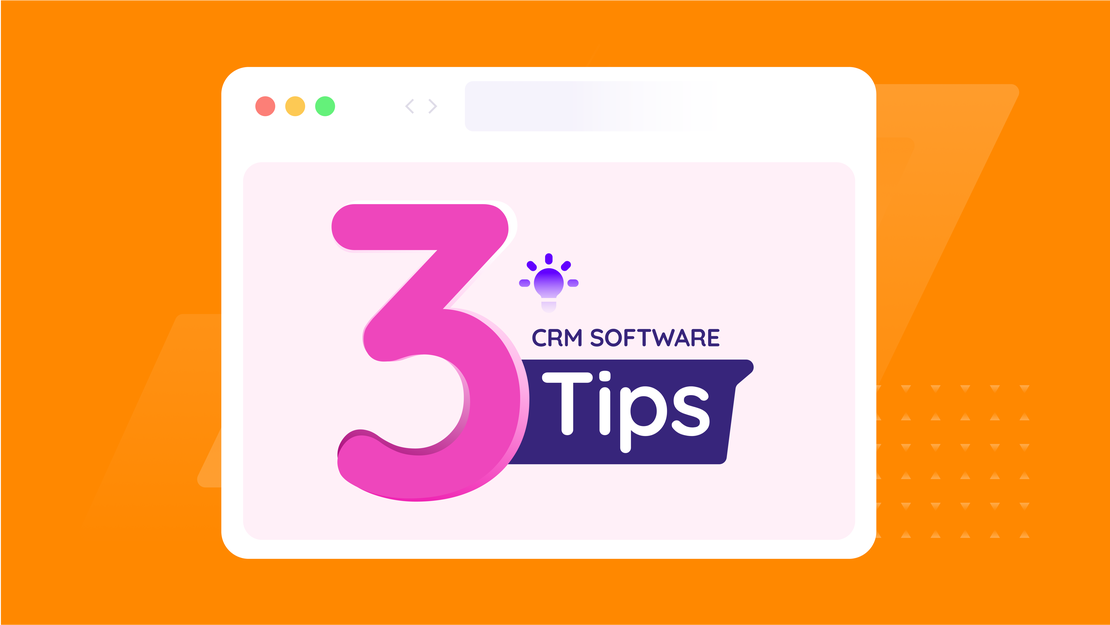CRM Software: 3 Tips for a Smooth Implementation

Table Of Contents
What is the purpose of CRM software?
CRM (Customer Relationship Management) software helps you centralize and enhance customer information with the goal of strengthening long-term customer loyalty and increasing sales.
With a CRM system like FlowQi CRM, you can not only manage all your customer data conveniently, but also gain better insight into your sales pipeline. Additionally, a CRM tool allows you to automate processes and leverage AI, making everything run more efficiently and smoothly.
The rapid growth of CRM tools in modern business
The CRM software market is growing rapidly: revenue in North America alone is projected to reach $53.27 billion by 2025. This demonstrates the increasing importance of CRM tools in modern business.
Yet, many organizations face challenges when implementing CRM software.
According to research, about 50% of CRM implementations fail within two years.
Why is that? You’d expect employees to welcome CRM tools with open arms.
After all, they no longer have to endlessly sift through emails to find important information. All customer data is organized in one place, collaboration with other teams is smoother, and repetitive tasks can be automated, allowing them to focus on more enjoyable work.
Is CRM software that difficult to use?
No. At least with our CRM tool, you don’t need any technical knowledge. But within many organizations, it’s often made unnecessarily complicated.
Managers choose CRM software because they want it to do everything. They create a long list of tasks they expect employees to manage using the software.
The implementation often takes over a year, and in 50% of cases, it results in nothing. A huge waste of time, money, and energy.
Why CRM implementations fail
Here are some other reasons why CRM implementations fail:
- Unclear goals: Many companies dive into CRM too quickly without knowing exactly what they want to achieve.
- Resistance to change: If employees don’t see the value in the system or find it difficult to use, they won’t adopt it.
- Outdated data: If the data in your CRM is inaccurate or outdated, the system won’t work properly. Incorrect or incomplete information can lead to poor decisions, making your CRM unreliable.
- Inadequate integration: If the system isn’t properly integrated with other tools, you end up with fragmented data that’s hard to use.
- Too many functions at once: Trying to introduce too many features at once can overwhelm your team and make it harder for them to accept the system.
The solution? Simplicity.
Start with the basics: a minimum viable product and a system that can grow with your business. With this approach, we developed FlowQi CRM, focusing on flexibility, usability, and affordability.
Our CRM software comes integrated by default with tools for project and task management. Want to add more tools later? No problem — you can do that at any time.
See for yourself what you think of our software: sign up now for our BETA Program and use it for free as a tester.
3 Golden tips for a smooth CRM software implementation
1. Start simple and small
We get it. You want to move forward, grow quickly, and roll out your CRM software as soon as possible. But employees can be hesitant about new technology, especially if they think it will complicate their work.
That’s why it’s smart to start small with the basic functionalities. This way, the system won’t become too complex, and your team won’t feel overwhelmed.
By starting with the basics, you can get the system up and running faster. This means your employees will start experiencing the benefits sooner — and you’ll see value more quickly too. It speeds up the acceptance process and ensures you see a positive ROI sooner.
2. Focus on your employees
Instead of focusing solely on the end results, it’s more important to focus on the people who will be using the software. Show them how CRM makes their jobs easier, not harder. Start with basic training that lasts just a few hours, and make it easy for them to master the software.
Since CRM affects several departments — such as marketing, sales, and customer service — make sure these teams feel involved and collaborate on the implementation.
3. Initiate a conversation
Simply ask your employees what challenges they’re facing. What’s making it difficult? Where are the roadblocks? How can we make it easier?
This will give you quick insight into where the biggest opportunities lie. Look for the solution that requires the least effort for the greatest impact.
By genuinely listening to your team and adapting your CRM strategy accordingly, you’ll make it much easier for them to use the software. This boosts their satisfaction, strengthens teamwork, and reduces resistance.
Sign up as a tester for our BETA Program
Put these tips into practice with FlowQi CRM: the most intuitive and flexible CRM software on the market, designed specifically for small and medium-sized businesses. Sign up now for our BETA Program to try all our software completely free of charge.